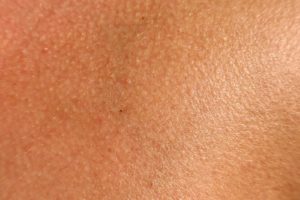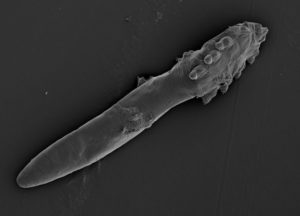 This study was done in mice, but...it may apply to humans. The researchers found that sugar intake in mice comparable with levels in Western diets (in humans) led to increased breast tumor growth and metastasis.They specifically found that table sugar and high fructose corn syrup "was responsible for facilitating lung metastasis and 12-HETE production in breast tumors" in mice. So, at the very least, think about eliminating high fructose corn syrup from the diet - read labels and definitely eliminate soda (a huge source of added high fructose corn syrup).From Science Daily:
This study was done in mice, but...it may apply to humans. The researchers found that sugar intake in mice comparable with levels in Western diets (in humans) led to increased breast tumor growth and metastasis.They specifically found that table sugar and high fructose corn syrup "was responsible for facilitating lung metastasis and 12-HETE production in breast tumors" in mice. So, at the very least, think about eliminating high fructose corn syrup from the diet - read labels and definitely eliminate soda (a huge source of added high fructose corn syrup).From Science Daily:
Sugars in Western diets increase risk for breast cancer tumors and metastasis
The high amounts of dietary sugar in the typical Western diet may increase the risk of breast cancer and metastasis to the lungs, according to a study at The University of Texas MD Anderson Cancer Center.The findings, published in the Jan. 1, 2016 online issue of Cancer Research, demonstrated dietary sugar's effect on an enzymatic signaling pathway known as 12-LOX (12-lipoxygenase).
"We found that sucrose intake in mice comparable to levels of Western diets led to increased tumor growth and metastasis, when compared to a non-sugar starch diet," said Peiying Yang, Ph.D., assistant professor of Palliative, Rehabilitation, and Integrative Medicine. "This was due, in part, to increased expression of 12-LOX and a related fatty acid called 12-HETE." Previous epidemiological studies have shown that dietary sugar intake has an impact on breast cancer development, with inflammation thought to play a role.
"The current study investigated the impact of dietary sugar on mammary gland tumor development in multiple mouse models, along with mechanisms that may be involved," said co-author Lorenzo Cohen, Ph.D., professor of Palliative, Rehabilitation, and Integrative Medicine. "We determined that it was specifically fructose, in table sugar and high-fructose corn syrup, ubiquitous within our food system, which was responsible for facilitating lung metastasis and 12-HETE production in breast tumors." Cohen added that the data suggested that dietary sugar induces 12-LOX signaling to increase risks for breast cancer development and metastasis.
Identifying risk factors for breast cancer is a public health priority, say the authors. The researchers state that moderate sugar consumption is critical, given that the per capita consumption of sugar in the U.S. has surged to over 100 lbs. per year and an increase in consumption of sugar-sweetened beverages has been identified as a significant contributor to an epidemic of obesity, heart disease and cancer worldwide.
The MD Anderson team conducted four different studies in which mice were randomized to different diet groups and fed one of four diets. At six months of age, 30 percent of mice on a starch-control diet had measurable tumors, whereas 50 to 58 percent of the mice on sucrose-enriched diets had developed mammary tumors. The study also showed that numbers of lung metastases were significantly higher in mice on a sucrose- or a fructose-enriched diet, versus mice on a starch-control diet.

 More and more negative news about phthalates: men with greater exposure to DEHP (a phthalate) have lower
More and more negative news about phthalates: men with greater exposure to DEHP (a phthalate) have lower  When we think about air pollution, we usually think about pollutants in the air that we breathe in. But there is a growing body of evidence that some pollutants found in the air, including a group of chemicals called phthalates, can be absorbed directly through the skin (
When we think about air pollution, we usually think about pollutants in the air that we breathe in. But there is a growing body of evidence that some pollutants found in the air, including a group of chemicals called phthalates, can be absorbed directly through the skin ( Two recent studies found health problems associated with low levels of
Two recent studies found health problems associated with low levels of  More evidence that traditional toys and books are superior to electronic toys in both verbal parent-child interactions and non-verbal interactions for young children. Parent-child verbal interactions are so important because they teach young children language, lay the groundwork for literacy skills, teach role-playing, teach emotional and social skills such as turn-taking and accepting others' leads. In other words, put down the electronic gadgets and go spend time talking and interacting with your young child with old style traditional toys and books. From Science Daily:
More evidence that traditional toys and books are superior to electronic toys in both verbal parent-child interactions and non-verbal interactions for young children. Parent-child verbal interactions are so important because they teach young children language, lay the groundwork for literacy skills, teach role-playing, teach emotional and social skills such as turn-taking and accepting others' leads. In other words, put down the electronic gadgets and go spend time talking and interacting with your young child with old style traditional toys and books. From Science Daily: The results of this study lead me to say DUH...of course spending time with children and being responsive to them, talking and interacting a lot with them, being affectionate and loving with them is best. So in this holiday season, don't just give gifts and toys to your children and think you can leave them to their own devices or with others, but spend time with them, talk a lot to them, play games with them, interact, and do things with them. Put down your own electronic devices (cell phone, laptop, tablet, etc) and go spend time with your child. From Science Daily:
The results of this study lead me to say DUH...of course spending time with children and being responsive to them, talking and interacting a lot with them, being affectionate and loving with them is best. So in this holiday season, don't just give gifts and toys to your children and think you can leave them to their own devices or with others, but spend time with them, talk a lot to them, play games with them, interact, and do things with them. Put down your own electronic devices (cell phone, laptop, tablet, etc) and go spend time with your child. From Science Daily: We can't see them, but we all have little face mites that live in our faces, specifically in hair follicles. The scientific name of the face mites: Demodex folliculorum. There are at least 4 lineages of face mites that correspond to different regions of the world. Good thing they're harmless (we think).Gross but fascinating. From Wired:
We can't see them, but we all have little face mites that live in our faces, specifically in hair follicles. The scientific name of the face mites: Demodex folliculorum. There are at least 4 lineages of face mites that correspond to different regions of the world. Good thing they're harmless (we think).Gross but fascinating. From Wired: Research found that postmenopausal women with periodontal disease (gum disease) were more likely to develop breast cancer than women who did not have the chronic inflammatory disease. And it's a bigger risk among those who currently smoke or quit smoking within the last 20 years. The interesting part is the fact that periodontal disease is a bacterial disease and that it results in inflammation. An earlier
Research found that postmenopausal women with periodontal disease (gum disease) were more likely to develop breast cancer than women who did not have the chronic inflammatory disease. And it's a bigger risk among those who currently smoke or quit smoking within the last 20 years. The interesting part is the fact that periodontal disease is a bacterial disease and that it results in inflammation. An earlier  A University of Georgia review study of the research literature shows that drinking coffee (instead of a caffeine supplement) improves athletic endurance performance. Also, that caffeine from coffee has
A University of Georgia review study of the research literature shows that drinking coffee (instead of a caffeine supplement) improves athletic endurance performance. Also, that caffeine from coffee has